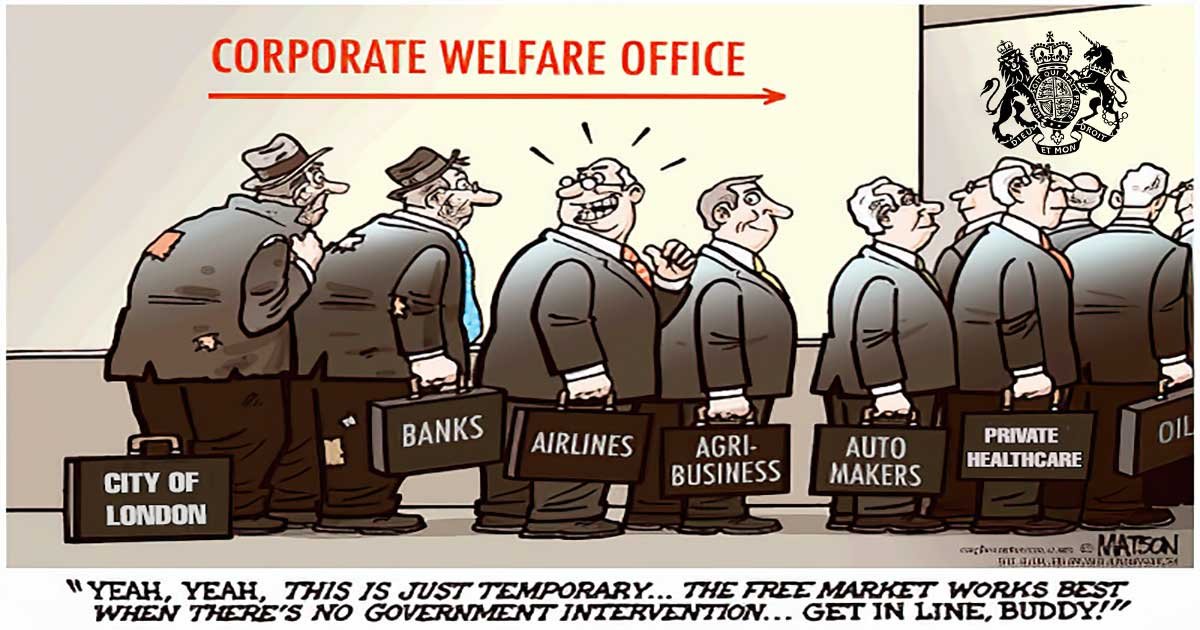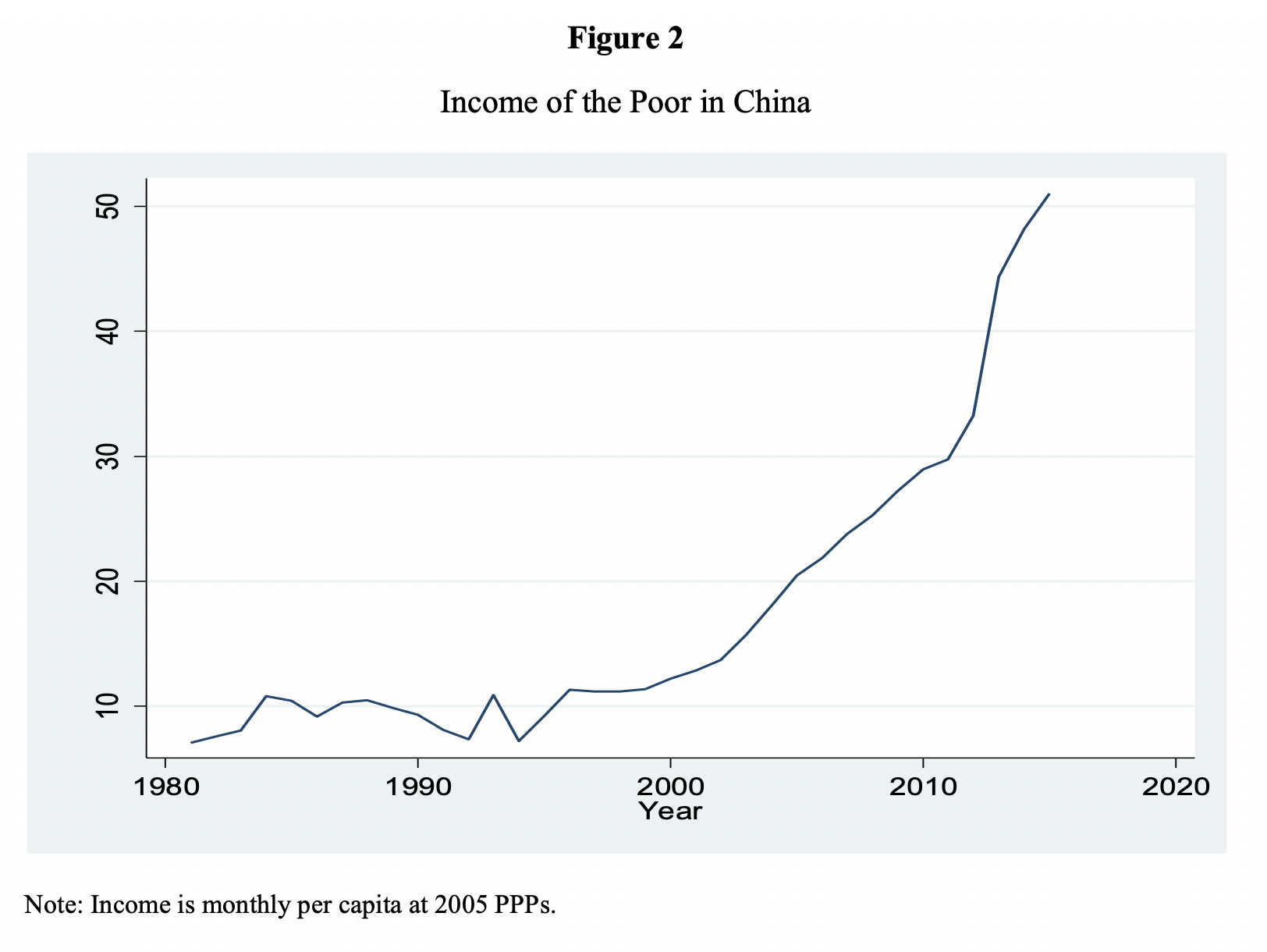Introduction to Socialism and Wealth Redistribution
Embarking on a journey into the realm of socialism often stirs up visions of wealth redistribution and collective ownership, which, contrary to popular belief, isn't about seizing your hard-earned cash to throw into an abyss of inefficiency. Rather, socialism's core principles advocate for a fairer playing field, where the fruits of labor are enjoyed by those who actually, well, labor.
Imagine a system where the government doesn't just sit back and watch the haves scoff canapés while the have-nots scramble for crumbs. Instead, it's hands-on in ensuring that everyone gets a fair slice of the economic pie. Socialism is built on the idea that if wealth is redistributed in a strategic manner, the entire society can thrive, not just the elite few. It's about making sure no one is left behind in the dust of economic progress.
This isn't a utopian fantasy. Factual data supports that nations with effective wealth redistribution systems in place tend to have more robust social welfare programs, maintain public goods efficiently, and drive economic development forward. Through considered policies and fair taxation, even within current political infrastructures, it's possible to create a socio-economic landscape where the redistribution of wealth doesn't mean a loss but a gain for society as a whole.
Today, income redistribution occurs in varied forms across the globe, with many countries embracing economic policies designed to level the playing field and increase quality of life for all their citizens. Ultimately, it's about ensuring a fair go for everyone in the quest for prosperity and happiness, which, let's be honest, doesn't sound like such a bad deal.
Understanding Socialism and Its Core Principles

To get to grips with socialism, one must first unzip the jacket of misconceptions and peek inside at its warm, fuzzy core principles. Socialism isn't some grey, drab existence where fun goes to die. No, it is, in essence, the ultimate team effort in creating a society that's less "Survival of the Fittest" and more "Helping Hands for All."
At the heart of socialism lie ideals that are as lofty as they are commendable. Chief among these is production for use, not just for profit's sake. The idea reverberates with common sense; goods and services should fulfill needs, not just inflate bank accounts. Factual data shows that carrying out this simple flip in perspective could mean a more equitable distribution of the goodies life has to offer.
Socialists argue for a system where wealth and material resources are shared like the last piece of chocolate cake at a family gathering—equitably, and with a keen sense of fairness, ensuring that everyone gets a bite. It's about chucking the rat race out of the window and embracing a market that shuns cut-throat competition in favor of cooperation and accessibility.
And let's clear the air here—socialism doesn't demand that one relinquishes personal property to the state. You can still have your cake, eat it, and, under socialism, not worry about someone stealing your cake-making machine. It's about collective ownership of production means while rocking on in your own world with your personal paraphernalia. In short, socialism could just be the friendly neighborhood Spider-Man of economic systems, swinging in with the promise of a happier, wealthier society for one and all.
How Socialism Aims to Redistribute Wealth for the Greater Good

Imagine a society where wealth isn't a game of Monopoly with a few tycoons controlling the board—socialism aspires to reshuffle the deck for fairness. By wielding its big idea of wealth redistribution, socialism seeks to tighten the chasmic gap between the haves and have-nots. The aim is to serve the greatest good, and factual data supports the notion that such a system can generate common wealth more effectively.
In a socialist system, the government isn't just some background noise rattling about; it takes the driver's seat, steering resources, labor, and land towards a more calculated and, well, social use. The state orchestrates the use of society's riches, hoping to create a symphony where different social ranks and classes find harmony.
By focusing on public benefits, socialism aims for the bullseye of community prosperity. With public ownership or significant control over the means of production and distribution, individuals are spared from the free-for-all scramble for wealth that often leaves the majority with the short end of the stick. The theory goes that with the government carefully curating the economy, disparities in wealth are smoothened out – not only across various areas but across society at large.
Such egalitarian principles provide the fertile ground from which springs the healthiest of blooms: a strong sense of community, reduced poverty rates, and a snug safety net for when life tosses lemons at the public. And so, the quest for socialism is not just about spreading the wealth—it's about optimizing human happiness, which, frankly, sounds like a splendid deal.
Social Safety Nets and Their Impact on Personal Wealth

Imagine a trampoline beneath a tightrope walker, offering assurance that a slip won't end in disaster. In a similar fashion, social safety nets provide a cushion in the socialist framework, softening the blow of life's financial falls for all beneath the economic high-wire. These safety nets, woven with threads of welfare programs and public assistance, are pivotal in underpinning personal wealth and ensuring no one gets sidelined by unforeseen calamities.
In societies infused with socialist principles, it's not uncommon to see a remarkable stability in personal finances, thanks to a sturdy lattice of unemployment benefits, public pensions, and healthcare systems accessible to all, regardless of one's bulging or modest purse. When such supports are in place, individuals are free to take entrepreneurial risks or pursue educational aspirations, knowing their basic needs won't be cast to the wind.
And let's not overlook the less tangible, yet invaluable, social security schemes safeguarding the twilight years of life. They allow for graceful aging with dignity, free from the specter of penury. It's a situation where minimum wages and proactive employment protection ensure fair compensation, creating an environment where labor rights are not just a catchphrase but a concrete reality.
These are not just economic lifebuoys; they're investments in a society's collective well-being, fostering a spirit of solidarity and shared prosperity. It's this cooperative ethos that caresses the notion of personal wealth in socialism, giving it a broader, more holistic definition that extends beyond the individual to the well-being of the entire social fabric.
The Role of Social Safety Nets in a Socialist Economy

Social safety nets serve as the societal trampoline, ensuring that should anyone stumble economically, they won't be left to face a freefall into poverty. Within the compassionate embrace of a socialist economy, these measures are fundamental to individual financial resilience and national prosperity.
Efficiently designed nets encompass a broad sweep of benefits, from unemployment insurance to public pensions and from maternity leave to universal healthcare. They offer reassurances that basic needs, including food and shelter, are not mere privileges but rights afforded to everyone regardless of their job status or income bracket.
The premise here is straightforward yet profound — when fear is alleviated, people are liberated to contribute to the economy in the most enterprising of ways. Emboldened by the safety net, they're free to innovate, take risks, and pour their energy into work that they find meaningful, without the all-consuming worry of "What if it all goes wrong?"
Moreover, by redistributing wealth via progressive taxation, these systems ensure those who climb the ladder of success don't pull it up behind them. Instead, they help to hold it steady for others to ascend.
Far from fostering dependency, such nets are tightly knit to catch citizens only long enough for them to regain their footing. Social safety nets are, indeed, the embodiment of a collective step forward, proving that in a socialist structure, everyone can bounce back higher, together.
Examples of Social Safety Nets Boosting Individual Financial Security

Social safety nets are not just theoretical constructs; they're real-world lifelines that buttress financial security. Let's look at some heartwarming editions from this less grim 'Black Mirror' scenario we call life.
For starters, unemployment insurance (UI) jumps to the rescue like a superhero when jobs suddenly evaporate. By providing a financial cushion, UI buys individuals time to seek new employment without the cold sweat of immediate poverty. It's no dystopia — studies suggest that UI recipients spend more time finding jobs that match their skills, potentially leading to better employment fits and higher wages.
Then there's the darling of the social safety net world: universal healthcare. Besides being a no-brainer for maintaining a healthy workforce, it unshackles individuals from the fear of medical bankruptcy. In countries with this system, the financial burden of illness is shared, and prosperity isn't just for those who can afford to be well.
Let's not forget public pensions, the ultimate old-age allies ensuring that wisdom doesn't come with a price tag. By guaranteeing income in retirement years, these pensions offer peace of mind, allowing individuals to save and invest throughout their working years without obsessing over their stockpile of acorns for winter.
Last but certainly not least, child benefits and education grants make certain that the next generation isn't penalized for the financial status of their progenitors. This investment in youth paves the way for a more educated, innovative, and financially secure society.
These snapshots from the album of socialist measures give us all a sepia-toned glow of hope. They prove that with a little teamwork and some sturdy nets, we can all have a fighting chance at financial security and a life free from the gripping fear of destitution.
Worker Ownership and Profit-Sharing Models

Delving into the heart of a socialist-inspired economy, one finds the empowering ethos of worker ownership and profit-sharing models. These approaches are not just about feel-good factor; they're about equity, job satisfaction, and economic inclusivity. Imagine a world where workers are not mere cogs in the corporate machine but are part-owners of the enterprise. Let's peek into this world.
Worker cooperatives embody the very spirit of collaborative accomplishment. Employees collectively own and manage the business, making decisions democratically that benefit all, not just the top brass. This breeds an environment where everyone has skin in the game, leading to increased motivation, innovation, and responsibility. You could say it's like a family-owned business where every worker is part of the family, reaping the rewards of their shared labor.
Now, splash in the concept of profit-sharing. When businesses embrace this model, they distribute a portion of profits among the employees. It creates a direct link between the efforts of the workers and the rewards they take home. It's like having a bonus level in a video game, where every extra effort can level up your pay packet. This doesn't just pump up bank accounts; it rockets job satisfaction to new heights.
Such inclusive economic models show that when workers have a stake, both happiness and the piggy bank grow. Socialism argues that reaping what one sows shouldn't be a solo sport; it's a team effort. And as the team thrives, so does the individual, proving that prosperity needn't be a lonely pursuit.
Exploring Worker Cooperatives and Shared Ownership

Picture a workplace where every voice counts and every pair of hands has a stake in the pot of gold at the end of the rainbow. That's the ethos behind worker cooperatives and shared ownership models, where the line between 'worker' and 'owner' blurs into a delightful smudge of inclusivity.
In these cooperatives, employees double up as shareholders, having a say in the big decisions and reaping the benefits of the company's success. Factual Data emerges strong here, because it turns out that this isn't just a utopian fantasy. Specifically, worker co-ops reveal capitalism's very concrete potential for cooperative production — a glimpse into how the workplace could operate with a dash of socialism stirred in.
These ventures aren't about trampling over each other to reach personal glory; they're about moving forward as a unit, a phalanx of determination and mutual respect. The S-word, socialism, comes into play, transforming workplaces into hotbeds of economic democracy. The tangible rewards? A morale boost, a reason to smack the alarm clock with a little more zest each morning.
Spurred by an independent socialist drive, these self-critical socialists aren't merely daydreaming. They are developing worker cooperatives as living, breathing examples of how economic democracy can thrive in the corners of a capitalist world. As the engine of profit-sharing purrs, it's clear: when workers have more than just a paycheck to gain, their wallets and their spirits, both, have much to gain.
The Impact of Profit-Sharing on Personal Income and Job Satisfaction

Profit-sharing might sound like a concept straight out of a worker's paradise, but it's also an effective strategy with very real benefits for both personal income and job satisfaction levels. When workers get a slice of the company's profit pie, it's not just about fattening their wallets, although that's a very welcome side effect. It's about the feels – the sense of ownership, engagement, and commitment to the company's success.
Let's trot out the factual data here: profit-sharing arrangements can lead to increased productivity and profitability. It's not rocket science; when people have skin in the game, they're more likely to roll up their sleeves and contribute to the business’s growth. The incentives shift from “doing just enough” to “going the extra mile”.
And then, there's the happiness factor. Worker satisfaction scales tip favorably when employees know that hard work translates to tangible rewards. They’re not just cogs in the corporate machine but valued members whose efforts are recognized and rewarded. In essence, profit-sharing can transform the traditional employer-employee dynamic into a partnership.
Add benefits of public ownership to the equation, and the appeal of socialist values becomes clear. By shifting focus from me-first capitalism to we're-all-in-this-together socialism, workers pivot from mere profit generation to vested stakeholders who care about the collective outcome - theirs, their colleagues', and the firm's. Consequently, companies see not just a happier workforce, but one that drives profitability from a deep-seated commitment to shared success. Go socialism, indeed!
Universal Basic Income (UBI) and Economic Security

As economic tides ebb and flow, a fail-safe mechanism to keep folks from drowning in the depths of poverty has come to the surface – Universal Basic Income (UBI). Think of it as society's financial buoy; a steady income unconditionally dispensed to all citizens, without the hoop-jumping of traditional welfare systems. Deceptively simple, yet staggeringly powerful, UBI's potential to enhance economic security cannot be overstated.
In an era where "job security" feels like a punchline from a history book, UBI offers a glimmer of hope. By ensuring a minimum level of income, it acts as a cushion against the harsh impacts of layoffs, automation, and economic downturns. Factual data suggests that this isn't just a daydream of idealistic do-gooders; it could be a pragmatic step toward reducing poverty and improving income security.
Imagine a world where worrying about basic survival is off the table, and the focus shifts to thriving and contributing to society in meaningful ways. With UBI, it's not about doling out charity but investing in human potential. People would have the financial stability to pursue education, take entrepreneurial risks, or care for loved ones without the paralyzing fear of financial ruin.
As debates simmer about UBI's feasibility, cost, and effects, one thing is clear: it could be a game-changer for economic security. It's not about creating a utopia; it's about reinforcing the safety net so that when life inevitably throws a curveball, it doesn't necessarily mean a strikeout.
The Concept and Potential Benefits of Universal Basic Income

Imagine a society where folks are unshackled from the drudgery of financial instability, where everyone receives a financial stipend with no strings attached—welcome to the concept of Universal Basic Income (UBI). It's a model designed to place a safety floor under every citizen, ensuring that basic needs are met regardless of one’s employment status. Now, doesn’t that sound like a breath of fresh air in a world mired in economic uncertainty?
With UBI, people can experience an uplift in mental health and wellbeing, knowing that poverty isn’t a looming specter ready to pounce at the first sign of misfortune. This isn’t just blissful speculation; it’s supported by factual data and real-world experiments. For instance, factual data from the experiments in Madhya Pradesh, India, demonstrated increased financial stability and improved quality of life for participants.
The benefits of UBI are far-reaching, not just for the individuals but for the economy as a whole. It can stimulate consumer spending, fuel entrepreneurship, and even alleviate the pressure on the existing social security system. Imagine the innovation and productivity that could be unleashed when the population isn't preoccupied with scraping by but is instead focused on contributing to society.
Contrary to skeptics like Oren Cass who argue that UBI could disincentivize work, proponents like Robert Reich suggest that it's a necessity in the face of automation. It's a bold step towards a future where economic security isn't a privilege for the few but a baseline guarantee for all—an unequivocally tantalizing prospect.
How UBI Contributes to Financial Stability and Consumer Spending Power
Universal Basic Income (UBI) stands as a beacon of hope in an ever-fluctuating economic landscape, offering a cushion of financial security to everyone. This seemingly utopian concept is rooted in robust factual data that suggests injecting an unrestricted wave of funds into the hands of citizens can stabilistically pirouette even the wobbliest of financial plates.
As individuals receive this unconditional financial support, their capacity to manage unexpected expenses and navigate the waves of economic downturns is significantly reinforced. Imagine not having to tremble at the sight of an unexpected bill or a sudden job loss – that’s the comfort UBI promises. It's not just about making ends meet; it's about affording the mental space to plan, dream, and live without the constant nag of monetary peril.
Furthermore, UBI could revamp the market like a shot of adrenaline. With more money at their disposal, people are likely to increase their spending, injecting vibrancy into the economy and potentially ramping up demand for goods and services. This, in turn, can lead to job creation, fostering an entrepreneurial spirit that’s eager to dive into the heightened market tide.
In the grand chessboard of economics and costs, UBI sits as a smart move, offering a dual fulcrum of stable personal finances and a stimulated economy. It dares individuals to leap into ventures they might have otherwise avoided, bolstering consumer confidence, which can cascade into a myriad of benefits for society at large.
Access to Education and Health Care
When we unlock the gates to education and equip our healthcare system to cater to everyone, factually speaking, we're not just indulging in a bit of socialist daydreaming – we're investing in our society's very heartbeat. Free or low-cost education sprinkles the seeds of opportunity broadly, allowing every individual, regardless of background, to cultivate the skills and knowledge essential for personal growth and economic participation.
Healthcare, stripped from the grasp of wallet-gouging, takes on a new persona under socialist policies – one that's accessible to all, without the terrifying spectre of mammoth bills. Immediate access to medical care isn't merely a courtesy – it's a game-changer for personal wealth. Gone are the days of health concerns sapping family funds or preventing the pursuit of employment.
By stitching these socialist threads into the social fabric, the community thrives. The workforce blooms with educated and healthy individuals who are more productive and content in their personal and professional lives. And let's not forget, when people aren't plagued by the anxiety of educational expenses or the potential financial ruin from a health crisis, they've got a fighting chance to be happier too. It's quite the revolutionary thought – fostering a society where the wellbeing of each person is not just a privilege, but a priority.
Socialist Policies Facilitating Free or Low-Cost Education

In the land of socialism, education is more than just a line on a budget; it's a guiding principle, a beacon illuminating the path to equality. Picture a world where the hefty price tag on knowledge is slashed, where the cash-strapped student, who once saw university gates as a distant dream, strides through them with confidence. That's what socialist policies aim to achieve: to disentangle opportunity from income and to offer every Joe and Jill a shot at becoming the next Einstein or Curie.
Let's lay out the facts with the finesse of a surgeon. Free or low-cost education isn't simply a charitable handout—it's an astute investment in the nation's future. It allows the daughters and sons of factory workers and financiers alike to scribble on the same page, to pursue their ambitions unbridled by the fear of insurmountable debt.
This isn't some utopian fantasy—it's grounded in stark reality. With the playing field levelled, the workforce diversifies and flourishes. People don't just become book-smart; they become life-smart, equipped with the critical thinking skills that a robust education system fosters. This creates a more informed electorate and a more vibrant economy.
And, as history has wryly noted, when the winds of education blow through a society, they scatter seeds of innovation, well-being, and, dare it be said, a certain je ne sais quoi of happiness. So, when socialist policies roll out the red carpet for free or low-cost education, they're building not just a smarter society, but also a richer one—in every sense of the word.
The Link Between Universal Health Care and Personal Wealth

When society embraces universal health care, it's not just about battling the sniffles without breaking the bank—it's about stitching a safety net that catches more than just the flu. By ensuring that Bob from accounting and Sally from the local café can both access the care they need, a considerable burden is lifted from individuals' shoulders, shielding them from the financial heart attack of medical bills.
Now, let's sprinkle some factual data into the mix: those nations that give a caring embrace to universal health care often see this benevolence bounce back in incredible ways. Better overall health leads to a sprightlier workforce, one less haunted by sick days and the financial ghoul of healthcare costs. This uptick in labor productivity acts like a secret ingredient, spicing up economic growth in the long haul.
Across the pond, where health care is more of a luxury item than a right, a startling number of families are led to bankruptcy, not by wild spending on avocado toast, but by medical issues that hoover up their savings. In this context, universal health care can be the knight in shining armor for personal wealth, preventing such drastic financial plummets.
In essence, when health isn't held hostage by wealth, there's more coin to clink in the piggy banks of everyday people, fostering a more robust and content society. It's an equitable approach turning the cogs of a happier, wealthier, and yes, healthier nation.
Summarizing How Socialist Principles Can Lead to Increased Wealth and Happiness

Socialist principles offer an intriguing recipe for concocting a cocktail of wealth and contentment within society. With an emphasis on equitable wealth distribution, these principles actively seek to narrow the chasm between the wealthy elite and the rest of the population. By introducing progressive taxation and fostering social safety nets, the tapestry of financial security can extend far beyond the privileged few.
Within this bold and nurturing framework, wealth redistribution isn't just a lofty ideal but a robust, practical strategy. Targeted welfare policies, such as free or subsidized education and housing access, break down barriers that have long held many back. Education becomes a tool for empowerment, not a debt sentence, while secure housing forms the foundation of stable lives.
The embrace of socialist economics means nationalizing key industries, like mining and transportation, which in turn secures not just jobs but also the proper reinvestment of profits into the community's fabric. Labor rights ensure a fair wage, while social security schemes ease the anxieties of growing old without a safety net. And let's not sidestep the joy of a well-funded universal health care system, which ensures illness doesn't equate to financial ruin.
In this light, happiness and wealth are not so much a personal conquest but a communal journey. It's a path certainly laden with collective responsibility, but also one that promises a fairer share of the pie, fostering a society where wealth isn't hoarded but harmoniously harnessed for the happiness of all.
Addressing Common Misconceptions on Socialism and Personal Success

Socialism often gets a bad rap, with critics painting a dreary picture of lackluster motivation and universal mediocrity. However, this perception wilts under the spotlight of factual data and real-world examples. While some naysayers argue that socialism stifles drive by leveling the playing field too much, proponents point to the added zest for life that busts this myth wide open.
The argument that socialism kills the incentive to work is as aged as it is fallacious. In a socialist structure, hard work can translate into jobs that spark joy rather than being a mere means of survival. It's not about trudging through a soul-sucking career; it's about flourishing in roles that truly resonate.
Everyone deserves a fair shot at happiness and wealth, and socialism extends this opportunity without prejudice. With an emphasis on communal wellbeing, it crafts an environment where collective success fertilizes personal growth, debunking the gloomy misconceptions that cloud socialism's potential to foster a rich and content society.
Comments
Post a Comment
Thanks for adding to the conversation!